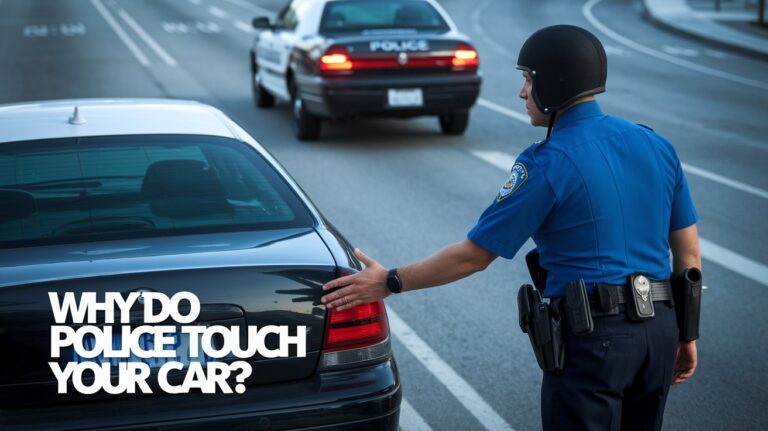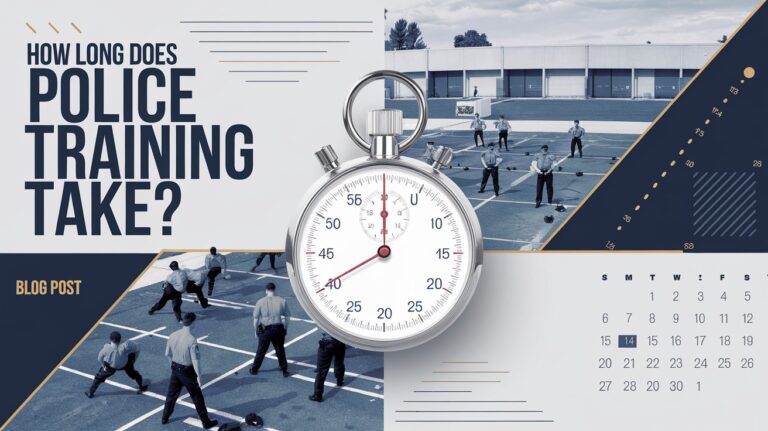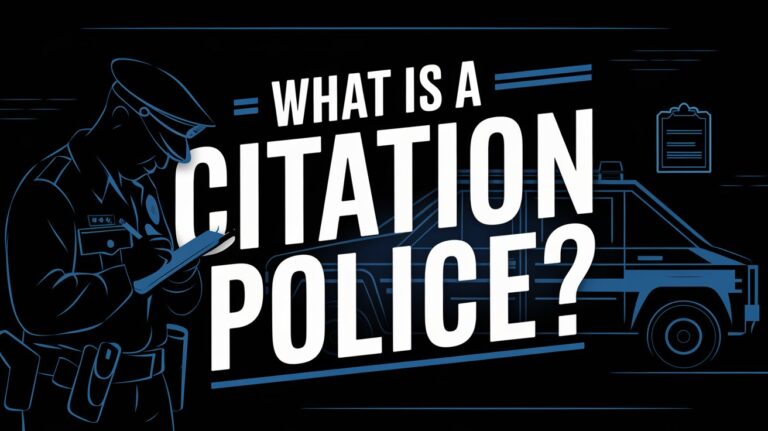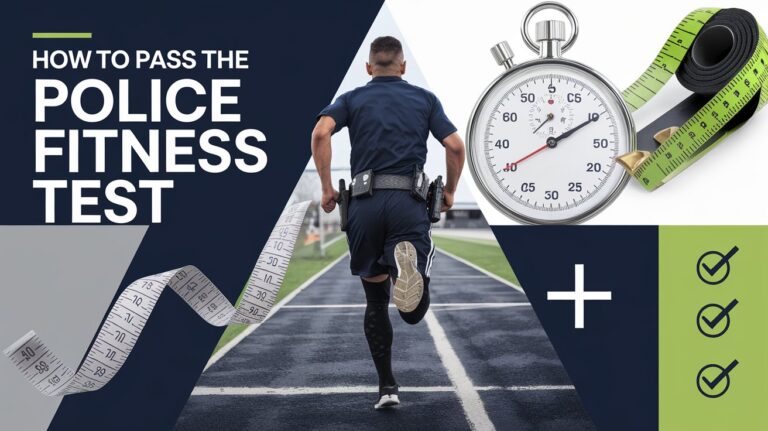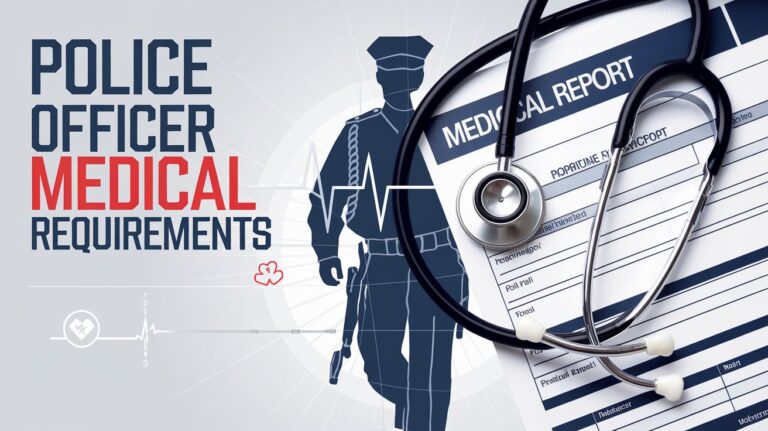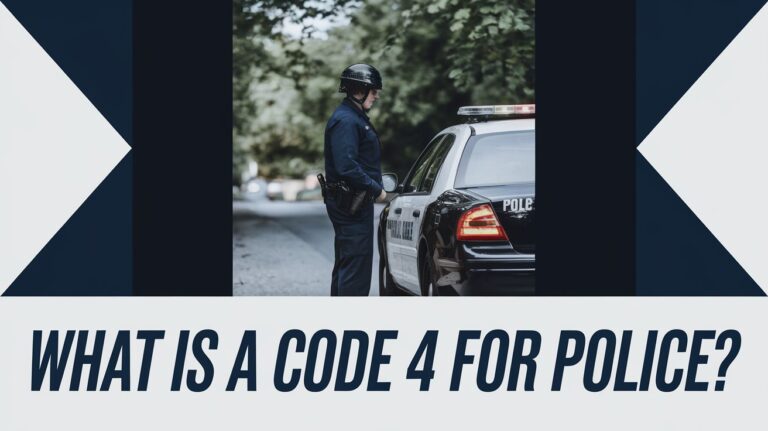What Disqualifies You from Being a Police Officer?
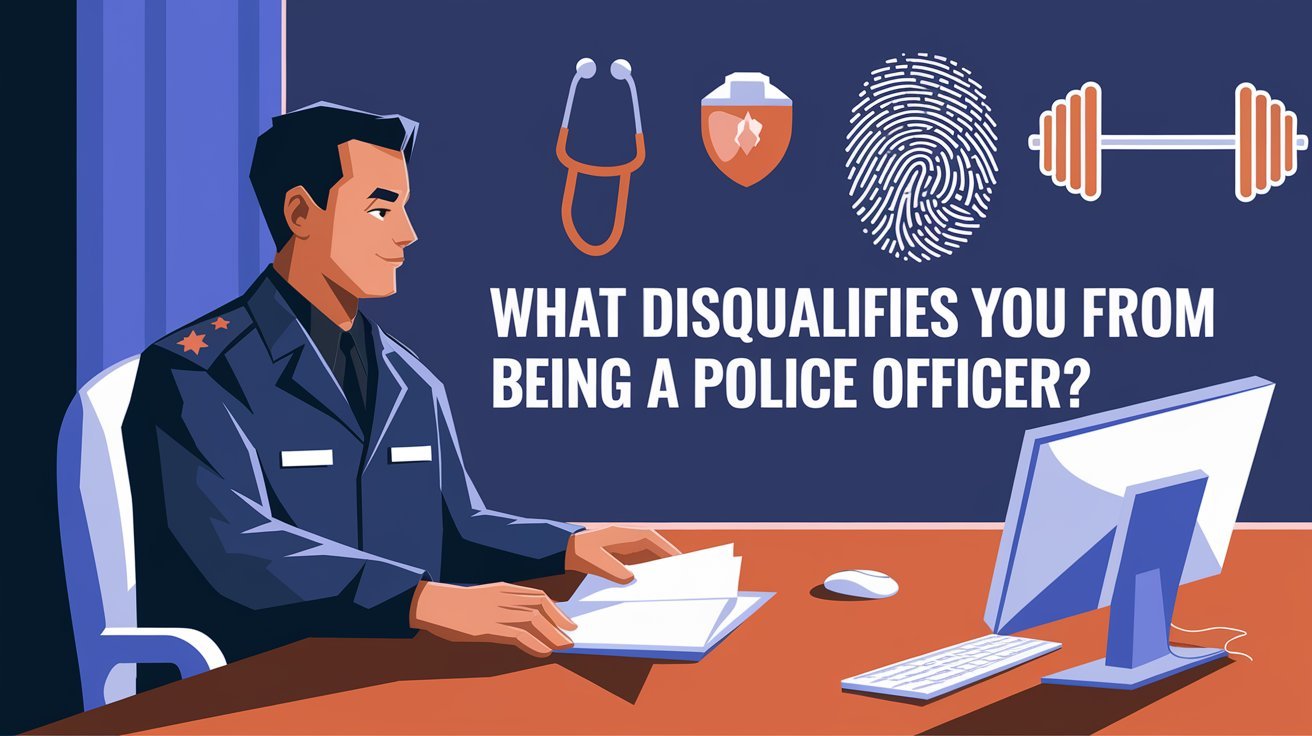
Joining law enforcement is a noble and sought-after career. But, it comes with its own set of challenges. The hiring process for police officers is long and strict. Candidates must meet high personal and professional standards.
One key part of this process is the background check. It looks into a candidate’s criminal record, education, work history, and personal behavior.
Ever thought about what might stop you from becoming a police officer? Finding out could help you understand the high standards of law enforcement. It could also make sure you’re eligible for this rewarding job.
Criminal Record and Legal Requirements
To become a police officer, you must meet strict legal and ethical standards. This includes a detailed check of your criminal history. Felony convictions, even if cleared, can stop you from joining the police in many places. Misdemeanors might not block your path, but they could show you made poor choices.
Felony Convictions and Their Impact
Having a felony on your record, even if it’s been erased, is a big hurdle to becoming a police officer. In California, for instance, a felony conviction means you can’t become a police officer. This rule applies even if the felony was later changed to a misdemeanor.
Misdemeanor Violations and Eligibility
Some misdemeanor crimes that take away your right to own a gun can also keep you from being a police officer. But, arrests or misdemeanor charges for things like drug use, DUI, or theft usually don’t automatically stop you. Also, juvenile crimes and adult diversion programs don’t usually count against you.
Traffic Violations and DUI Records
Getting caught for traffic offenses, like DUI or reckless driving, can hurt your chances of becoming a police officer. Some police departments won’t hire you if you’ve had four or more traffic tickets or accidents in the last five years. So, it’s important to keep your driving record clean.
| Disqualification Factor | Impact on Police Officer Eligibility |
|---|---|
| Felony Convictions | Automatic disqualification, even if expunged |
| Misdemeanor Convictions | May disqualify, specially if showing bad judgment |
| Traffic Violations (4+ in 5 years) | May lead to disqualification |
| DUI Convictions | Negatively impact eligibility |
Drug Use and Substance Abuse Policies
To become a police officer, you must meet strict standards. Drug use or substance abuse can stop you from joining. Police agencies are tough on drugs because officers must follow the law and keep trust with the public.
Many police departments say no to marijuana use in the last 12 months. But, using harder drugs like cocaine, LSD, or heroin can mean you’re out for good. Selling drugs is always a big no-no.
Police also look at non-prescription steroids and prescription drug abuse. If you’re addicted to drugs or prescription meds, you’re out. This is because addiction can affect your work and safety.
If you’ve used marijuana in a place where it’s legal, but did something wrong with it, you might still get turned down. This includes selling, growing, or making drugs without permission.
Using prescription drugs in a way that’s addictive or selling them without permission is also a no-go. This is because it shows you might not be able to follow the law.
Using illegal steroids, buying drugs for yourself, or making and selling drugs are all big no’s. These actions are considered serious and can keep you from becoming a police officer.
Police look at how recently you used drugs, the type of drug, and if you were involved in selling it. Even with a shortage of officers, drug use is still a big deal in the hiring process.
| Drug Use Disqualification Factors | Automatic Disqualification | Potential Disqualification |
|---|---|---|
| Marijuana | Use within the last 12 months | Engaging in distribution, sale, transport for profit, cultivation, or manufacturing without legal authorization while in a position of public responsibility |
| Harder Drugs (Cocaine, LSD, Heroin) | Any use | N/A |
| Prescription Drug Abuse | Addictive usage or engaging in distribution, sale, or transportation of prescribed drugs for profit without legal authorization while in a position of public responsibility | N/A |
| Illegal Anabolic Steroids, Illegal Drug Purchase for Personal Use, Distribution/Sale/Transportation of Controlled Substances for Profit, Manufacturing Illegal Controlled Substances | Any use within the last 5 years while in a position of public responsibility | N/A |
Physical and Medical Standards
Police officers must meet strict physical and medical standards. These ensure they can do their job safely and well. The standards cover vision, hearing, fitness, and health.
Vision and Hearing Requirements
Candidates need 20/20 vision, either naturally or with glasses. They also must pass a hearing test. This shows they can hear normally. These are key for responding to emergencies and talking to the public.
Physical Fitness Benchmarks
- A job task analysis with over 300 law enforcement supervisors updated fitness standards for new officers.
- The fitness screening was changed to measure fitness based on job skills and aptitudes.
- Cooper Institute’s physical screening elements were used to ensure fairness for both genders.
- All candidates must pass a fitness test to check if they can do the job.
Health Condition Restrictions
| Medical System | Revised |
|---|---|
| Cardiovascular System | 2014 |
| Endocrine System | 2004 |
| Gastrointestinal | 2001 |
| Hematology | 2015 |
| Musculoskeletal | 2015 |
| Neurology | 2001 |
| Respiratory System | 2014 |
| Vision Guidelines | 2020 |
Candidates must have a medical review after being offered the job. A doctor will check if they can do the job. The police agency decides if they can be hired based on this review.
What Disqualifies You from Being a Police Officer:
Becoming a police officer is tough, with many rules to follow. These rules help pick the right people for the job. The background check looks at everything to make sure officers are trustworthy.
Having a felony record is a big no-no. Crimes like violence, theft, or drug charges mean you can’t be a cop. Even misdemeanors like domestic violence or a bad driving record can stop you.
- Felony convictions
- Serious misdemeanors, such as domestic violence
- Multiple traffic violations or DUI convictions
Drug use is also a big deal. If you’ve used illegal drugs before, you might not get the job. Using marijuana, Adderall without a prescription, or other drugs can also keep you out.
Other things can also get you kicked out of the running. This includes being dishonorably discharged from the military, having a bad work history, or lying on your application.
“Candidates may be disqualified for a history of disrespect for the law, violent tendencies, job termination for poor behavior, or failure to adjust to discipline.”
It’s key for those wanting to be police officers to know the rules. By understanding the disqualifiers, background check, and eligibility criteria, you can better your chances. This way, you can join the police force.
Background Investigation Process
Becoming a police officer means going through a detailed background check. This check can take weeks or even months. It looks into your credit, job history, and who you know.
Credit History Evaluation
Checking your credit is a big part of the background check. Investigators look at your credit report to see if you handle money well. They look for things like too much debt or missed payments. This helps them decide if you’re right for the job.
Employment Verification Methods
The check also looks at your past jobs. They call your old bosses to confirm what you did and how well you did it. They might also talk to people you’ve worked with to learn more about you.
Reference Check Procedures
Police departments also do deep reference checks. They talk to your family, friends, and old bosses. They want to know if you’re a good fit for the job.
The background check is very detailed. It makes sure only the best people join the police force. This way, they can keep our communities safe.
Military Service Records and Discharge Status
When you apply to be a police officer, your military service is closely looked at. The police might ask for detailed records of your service. This includes your service dates, ranks, promotions, awards, and any disciplinary actions. You’ll often need to provide your discharge papers during the background check.
A dishonorable discharge can make it hard to get a law enforcement job. It shows a serious breach of conduct. Police departments usually see this as a big red flag. But, an honorable discharge is seen as a plus. It shows you were dedicated, disciplined, and followed military standards.
- Military service records are thoroughly reviewed during the police officer hiring process.
- Candidates may be required to provide their discharge papers as part of the background check.
- A dishonorable discharge is often a disqualifying factor, while an honorable discharge is viewed favorably.
If you’ve served in the military and want to be a police officer, knowing about your records is key. Make sure your discharge is honorable. And provide all the necessary documents. This can really help your chances of getting the job.
Psychological Evaluation Criteria
Psychological evaluations are key in hiring for law enforcement. They check if a candidate can do the job well, if they might pose a risk, and if they could be a liability for the department. But, these evaluations can be less accurate because evaluators are often chosen based on who bids lowest, not their expertise.
Mental Health Standards
Screenings for police officers aim to find out if they have big mental issues or personality disorders. They use a mix of interviews and tests, usually two to four. Examiners look for patterns in answers to see if the candidate is being honest.
Even if someone has anxiety, depression, or PTSD, they might still pass. But, they have to show they can handle these issues. Schizophrenia, which can mess with decision-making, might mean they don’t qualify.
Personality Assessment Requirements
The last step is a mix of interviews, test results, and a look at the candidate’s past. It checks for big mental health problems and personality traits. This ensures they fit the job’s demands.
The success of these evaluations depends on the candidate’s honesty. Examiners look for any signs of dishonesty or trying to seem perfect.
Social Media and Personal Conduct Review
In today’s world, police departments check candidates’ social media and online life closely. Posts or photos that show bad judgment can keep someone from getting the job. People wanting to be cops should clean up their social media before applying.
Police also look at what someone browses online. They want to see if a candidate is right for the job. It’s important to act professionally online to keep the public’s trust.
“Disqualifying factors related to social media and personal conduct can include inappropriate or offensive content, evidence of illegal activities, and a demonstrated lack of sound judgment,” explains a police recruitment officer.
Job seekers need to remember that their social media screening, online presence, and personal conduct matter a lot. Keeping a good digital image can help you get through the tough hiring process. It’s a step towards becoming a part of the law enforcement team.
Education and Training Prerequisites
To become a police officer in the United States, you must meet strict educational and training standards. Recruiters check your high school and college records. They might also talk to your teachers or classmates to learn more about you.
Most police jobs require a high school diploma or a GED. But, many agencies prefer candidates with a college degree. This shows you’re ready for the job’s mental challenges.
Completing police academy is key for new recruits. This training lasts several months and covers many subjects. You’ll learn about criminal law, how to investigate, and how to use firearms. You’ll also get in shape. After graduating, you’ll be ready to serve your community well.
FAQ
What are the common disqualifiers for becoming a police officer?
To become a police officer, you can’t have felony convictions or serious misdemeanors. You also can’t use drugs now or have a bad credit history. Dishonorable military discharge, domestic violence, and poor driving records are also no-go’s.
Being in a gang or having a bad work history can also keep you out. Giving false or incomplete info on your application is a big no-no.
How do felony convictions and misdemeanors impact eligibility for police officer positions?
Felony convictions mean you can’t be a police officer. Misdemeanors might also stop you, if they show bad judgment.
What is the impact of traffic violations and DUI records on becoming a police officer?
DUIs or reckless driving can hurt your chances. Some places won’t hire you if you’ve had 4 or more moving violations in 5 years.
How do departments view drug use and substance abuse in the hiring process?
Using drugs now or in the past can disqualify you. Many places won’t hire you if you’ve used marijuana in the last year. Hard drugs like cocaine or LSD mean you’re out for good. Selling drugs is a definite no.
What are the physical and medical standards required to become a police officer?
Police need to meet certain physical and medical standards. Your vision and hearing must be good. You’ll have to pass fitness tests like running and lifting.
They check if you can do the job safely, following ADA rules. Some places have rules on height, weight, and age.
How thorough is the background investigation process for police officer candidates?
The background check is very detailed and can take a while. It looks at your credit, job history, and references. They might even visit your hometown to talk to family and friends.
It starts right after you apply. Keep your info up to date.
How do departments review military service records for police officer applicants?
Military records get a close look during the background check. You’ll need to provide your discharge papers. They’ll want to see your service history, ranks, and any disciplinary actions.
A dishonorable discharge usually means you can’t be a cop.
What is the role of psychological evaluations in the police officer hiring process?
Psychological tests are key in the hiring process. They use the MMPI to check for issues like anxiety or depression. You must meet the department’s mental health standards.
The test includes written and oral parts.
How do departments review candidates’ social media and online presence?
Police check your social media and online life. Anything showing bad judgment or ethics can get you disqualified. Clean up your profiles before applying. They might also check your browsing history.
What are the education and training requirements to become a police officer?
Your education is reviewed, including high school and college. Some departments might talk to your teachers or classmates. You usually need a high school diploma or some college.
Many prefer a bachelor’s degree. After being hired, you’ll have to go through police academy training.

